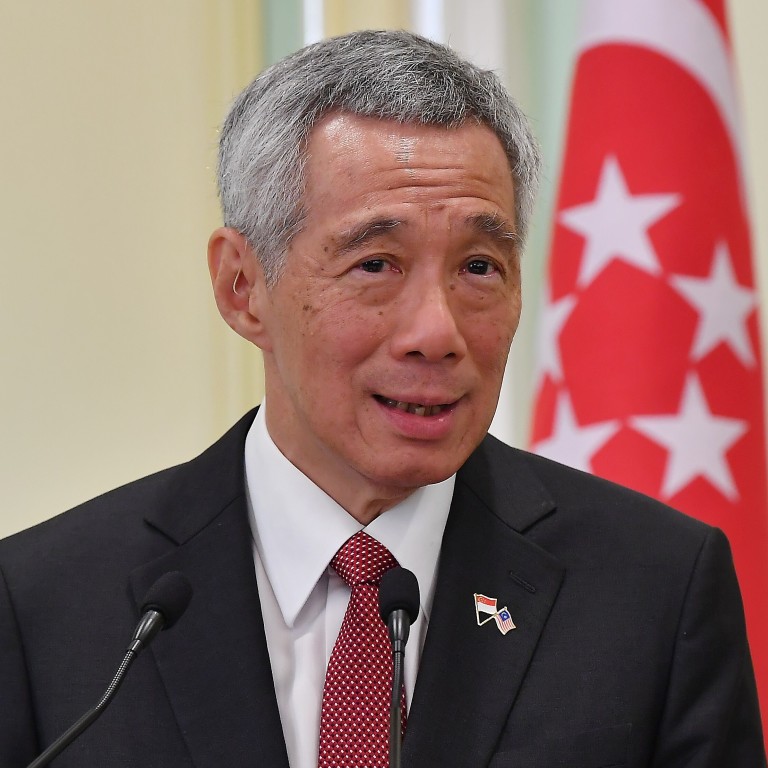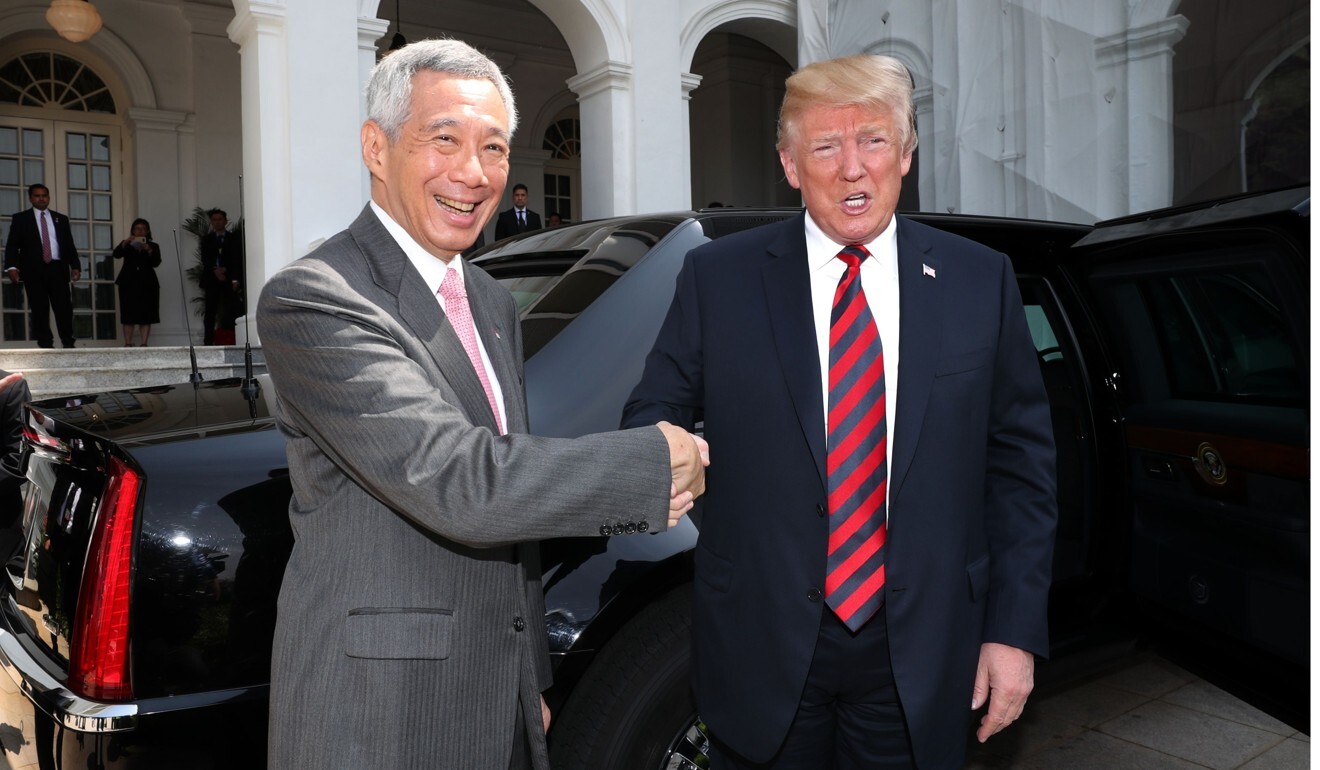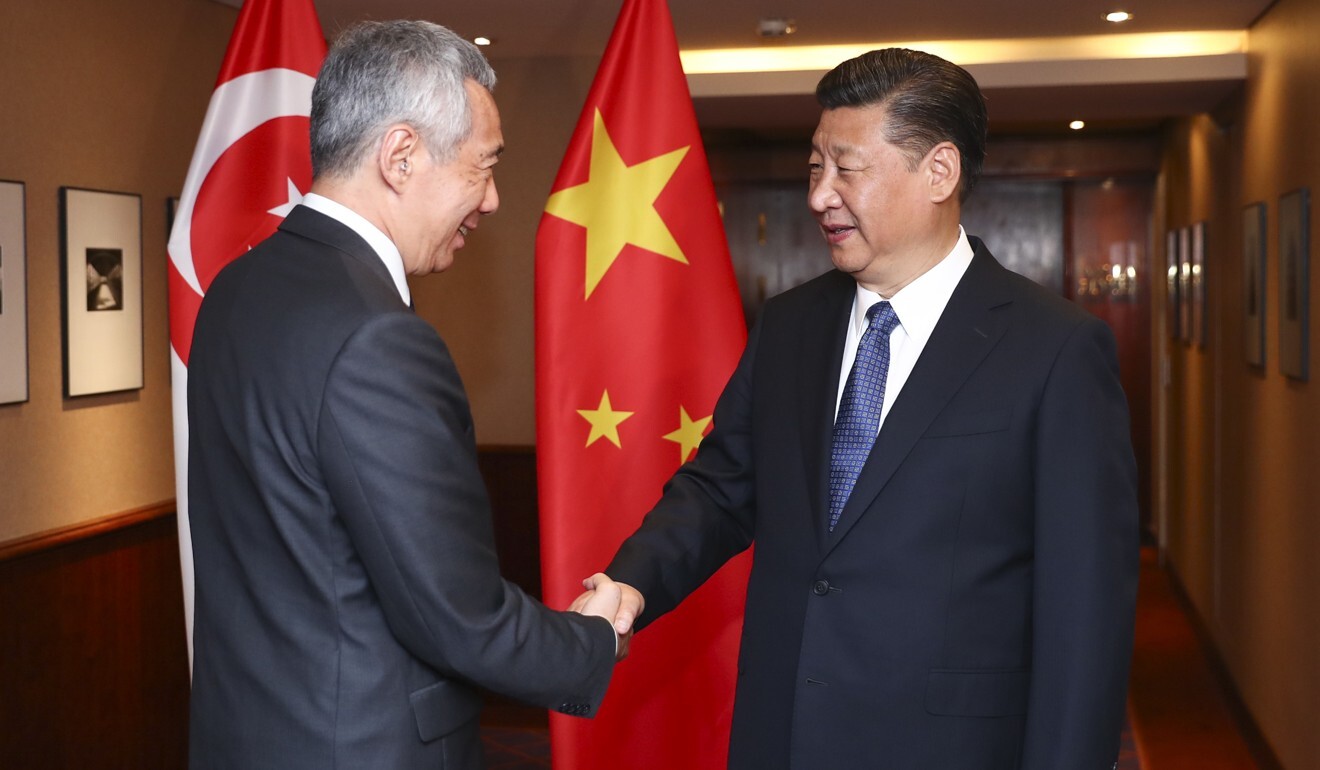
US, China should develop truce under Biden, says Singapore PM Lee Hsien Loong
- President Donald Trump’s ‘America First’ policy has changed perceptions about the US, and it may never recover from that, Lee said
- He rejected attempts to divide countries ‘Cold War style’, and also spoke about the RCEP trade deal, Huawei, coronavirus vaccines and Singapore’s economy
A new framework between the nations would allow both countries “to develop the areas of common interest, and constrain the areas of disagreement” on issues such as trade, security, climate change, North Korea and non-proliferation, Lee said in an interview with Bloomberg at the New Economy Forum.
Singapore’s leader also rejected any attempt to divide nations “Cold War style”.
“We all want to work together with the US, we all want to work together with other vibrant economies, we would like to cooperate within the region,” said Lee, who has already offered his congratulations to Biden. “I think not very many countries would like to join basically a coalition against those who have been excluded, chief of whom will be China.”
US reaffirms Asean ties, despite Trump skipping summit for third time
A city state dependent on trade, Singapore supports a strong American presence in Asia by allowing the US to use its military facilities while also counting China as its top trading partner.
Citing the punitive tariffs Trump placed on China that were maintained in the “phase-one” trade deal reached in January, Lee said it would be difficult for any successive US administration to take them away.
“There’s some elements in the administration who definitely did want to make moves which would be very difficult to reverse by the subsequent administration, and which will set the tone for the relationship for a long time to come,” Lee said.

The Singapore leader, who along with his father Lee Kuan Yew has run the Southeast Asian nation for much of its existence, also noted that anti-China sentiment in the US has gained deep bipartisan support beyond Trump.
“The consensus to see China as a strategic threat is almost becoming received wisdom and unquestionable in the US,” Lee said. “And so it will be very difficult for any administration, whether it’s Biden or on the outside chance, Trump, to disregard that and just proceed as if the last few years had not taken place.”
World’s biggest trade deal signed – and doesn’t include US
It is also a “significant statement that in Asia, whatever happens in the broader world, we would like to promote regional integration and we do believe in a model of cooperation and win-win trade, rather than in going it alone and beggar thy neighbour, which in these troubled times is worth quite a lot”, he said.
On vaccines, Lee said that while larger countries have ensured they are first in the queue, the World Health Organization also makes a “very valid point that the best way to get the Covid-19 under control is to have a rational scheme of priorities, to distribute the vaccine to the places where it will make the most difference to the outbreak”.

“I don’t think you would have finished protecting the world’s population within the next year. Furthermore, you’re not sure what risks and problems may arise. And you have to learn as we feel our way forward. So we are not in the best case situation, but at least with where we are now, it has been possible for the science and the technology and the production to come up with a number of vaccines in record time.”
The pandemic has presented a “huge challenge for Singapore”, Lee said. “It’s existential, really, both economically as well as from a public health point of view, and I think it’s my responsibility to see us through this crisis before I hand it over in good shape – into good hands, and I hope that will be before too long.”
How long can Singapore walk the tightrope between the US and China?
The prime minister sees the Singapore government running a budget deficit at least through early next year, and perhaps “a while” longer, as the coronavirus-hit economy bends the its traditional fiscal prudence.
“The next budget is in February. I very much doubt we will have any budget surplus by then,” Lee said. “I hope that we will be able to come back to prudence and a balanced budget, but it may take a while.”
Governments globally have spent trillions of dollars this year to combat Covid-19 and its impacts. Singapore was among the first in Asia to unveil massive stimulus, and in March sought to tap its national reserves for the first time since the global financial crisis.
In all, the government has pledged about S$100 billion (US$74 billion) across five aid packages to stem the virus and its hit to the economy, about half of which has been approved to be financed by past reserves. The latest estimated balance for financial year 2020 is a deficit of S$74.2 billion, according to government figures in October.

Lee defended the need for the deficit, saying in the interview that “just from a countercyclical point of view, you do not want to have a negative fiscal impulse,” and instead must spend to keep people in jobs or support them through unemployment. His comments echo calls by the International Monetary Fund – usually a proponent of budget restraint – to set aside debt fears for now and raise public spending to spur economies.
Lee said Singapore is still in the middle of a crisis, and reiterated that he planned to leave office once he could “hand it over in good shape,” which he hoped would be before “too long.” Before the pandemic, Lee had said he aimed to step down by the time he turned 70.
Don’t try to change China’s system, former official warns US
For industries like aviation, tourism and entertainment, “it is better for me to take care of them and keep these sectors in suspended animation, than to risk reviving them before we are ready to deal with the consequences and then we have another major Covid outbreak”, Lee said.
At the same time, he added that it must be “deeply ingrained” in Singapore that the reserves are not “bottomless” and “we have to earn our keep”.
“We have to deal with the public health and the economic requirements in the immediate and medium term, but one day this too will pass,” he said. “And when it does, we must make sure that we can get back to the habit of balancing our budgets.”

